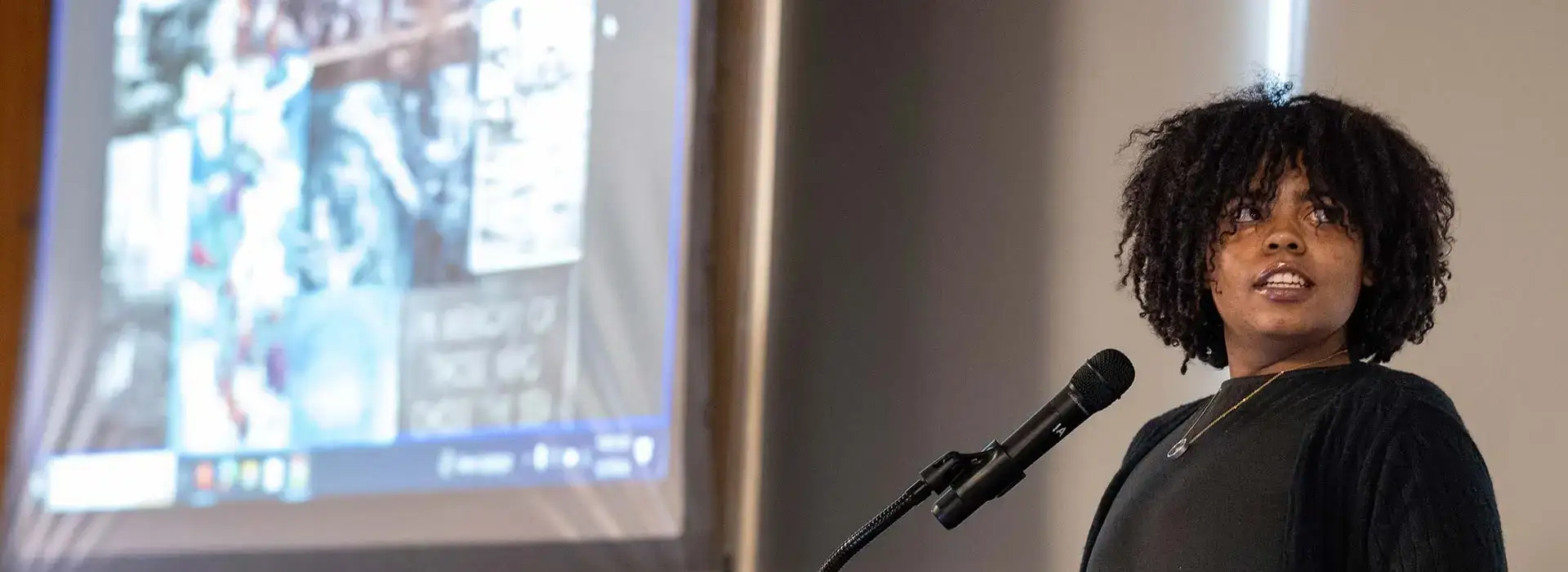SUNY Oneonta’s annual New Critics, New Writers Undergraduate Conference offers the opportunity to present a scholarly paper or creative writing piece in a professional conference setting.
Spring 2026 Conference
This year's conference takes place in Hunt Union starting March 26.
Conference History
The annual undergraduate conference in English, originally known as New Critics, dates back to 2009. Conceived and organized by Dr. Bianca Tredennick and Parnassus, the English Club, the conference was held for 11 years on a Saturday in April. It featured student panels from SUNY Oneonta and colleges and universities across New York State. The organizers also brought in notable keynote speakers like the YA author M. T. Anderson, the literary critic Jonathan Culler, scholar Sharon Marcus, and essayist and translator Daniel Mendelsohn.
With the addition of a writing concentration to the Oneonta English major, the conference shifted format and name. In spring 2024, it was renamed “New Critics, New Writers” and featured five public sessions embedded in the senior capstone class. In addition to the traditional student panels, the 2024 New Critics, New Writers conference featured a reading by Oneonta creative writing students. Another student-organized panel, “Beyond the Barista Stereotype,” featured six English Department alumni discussing their career paths in board game design, content design, environmental communication, journalism, library science and technical editing.
Contact the English Department
Fitzelle 351
108 Ravine Parkway
Oneonta, NY 13820
United States
